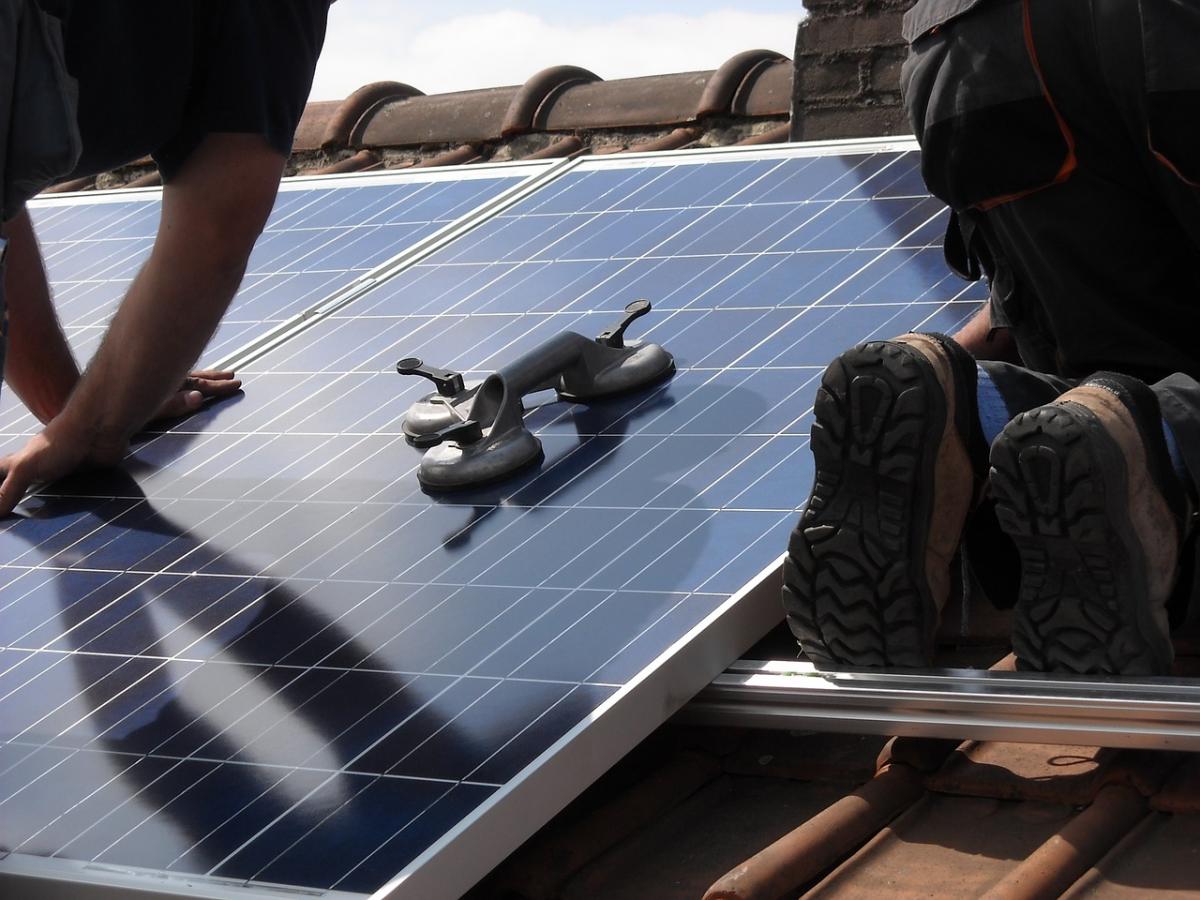How to make the energy transition fit for consumers
How to make the energy transition fit for consumers
BEUC NEWS - 26.05.2021
Tackling climate change means that we will need to make major efforts to reshape the way we heat our homes and move around. In July, the EU will unveil its ‘Fit for 55’ package, which will adapt EU energy and climate legislation to Europe’s new target of reducing greenhouse gas emissions by 55% by 2030.
Ahead of this major milestone, BEUC’s Energy team has drafted a series of position papers covering four key areas to make sure that the package is made fit for consumers:
1. Renewable energy
 Consumers are currently locked into an energy system that makes it easier and more affordable for them to use fossil fuels to move around and to heat their homes. This is harmful for the environment as well as for people’s health and wallets. Consumers will need incentives to replace their appliances as well as clear information and reliable advice. The European Commission will also need to ensure that – in the review of its Renewable Energy Directive – opting for renewable energy becomes the easy and affordable energy choice for consumers.
Consumers are currently locked into an energy system that makes it easier and more affordable for them to use fossil fuels to move around and to heat their homes. This is harmful for the environment as well as for people’s health and wallets. Consumers will need incentives to replace their appliances as well as clear information and reliable advice. The European Commission will also need to ensure that – in the review of its Renewable Energy Directive – opting for renewable energy becomes the easy and affordable energy choice for consumers.
2. District heating
 District heating - which distributes heat through a network to multiple buildings - is often mentioned as one of the most promising solutions to decarbonise heating and cooling thanks to the efficiency gains it offers. There are plans for many new networks in the years to come. For it to really take off, it must meet consumers’ needs. Unfortunately, many consumers using district heating today face difficulties: sudden price increases, or complex contracts without the option to switch to another supplier. Stronger consumer protection is needed to increase public acceptance of district heating.
District heating - which distributes heat through a network to multiple buildings - is often mentioned as one of the most promising solutions to decarbonise heating and cooling thanks to the efficiency gains it offers. There are plans for many new networks in the years to come. For it to really take off, it must meet consumers’ needs. Unfortunately, many consumers using district heating today face difficulties: sudden price increases, or complex contracts without the option to switch to another supplier. Stronger consumer protection is needed to increase public acceptance of district heating.
3. Sustainable housing
 Consumers want to enjoy healthy and affordable homes. Many consumers are willing to improve the comfort of their homes and to save energy. However, for consumers to implement energy efficiency measures and undertake home retrofit works, further guidance and support are needed. In its revised Energy Efficiency Directive, the European Commission should help consumers with their retrofit project by setting consistent rules, ensuring that energy efficiency improvements become more available, affordable and hassle-free. This must go hand-in-hand with measures to tackle energy poverty, such as adding a binding target to ensure that people facing energy poverty are prioritised in energy efficiency efforts and investments.
Consumers want to enjoy healthy and affordable homes. Many consumers are willing to improve the comfort of their homes and to save energy. However, for consumers to implement energy efficiency measures and undertake home retrofit works, further guidance and support are needed. In its revised Energy Efficiency Directive, the European Commission should help consumers with their retrofit project by setting consistent rules, ensuring that energy efficiency improvements become more available, affordable and hassle-free. This must go hand-in-hand with measures to tackle energy poverty, such as adding a binding target to ensure that people facing energy poverty are prioritised in energy efficiency efforts and investments.
A starting point for many consumers looking to retrofit their home is access to information on building’s energy performance. This need is partially addressed by current Energy Performance Certificates, but the information they provide must be made more accurate and reliable. Consumers should get a clear overview of the investments in improvement works needed to increase the energy performance of the property. Finally, to help guide consumers throughout their home retrofit journey, one-stop shops – combining a full range of advice and services – need to become more available.
4. Carbon pricing
There is a growing consensus that tax policies, and especially carbon pricing, should be adapted to push more sustainable choices while discouraging less sustainable ones. To put this into practice, the European Commission is currently considering extending the EU Emissions Trading System to road transport and buildings. BEUC is concerned that this would distract policy-makers from taking more effective measures. We also fear it would have a negative financial impact, especially on people with lower incomes, without sufficient guarantees that consumers would be provided with alternatives to unsustainable/carbon intensive transport and heating/cooling devices.
As an alternative, we therefore recommend that the European Commission makes greater use of levers that are easier, more efficient and that have often already proven to deliver results. This includes some of the measures highlighted above such as a more robust Energy Efficiency Directive. If the European Commission goes for the EU ETS extension, then very strong mitigating measures should be foreseen for consumers. The revenues of the extended ETS should be earmarked to mitigate the impact of higher prices on consumers, especially those on lower incomes.
The ‘Fit for 55’ package will be released in July 2021. In the meantime, delve into our definitive guide on how to put consumers front and centre in the sustainable transition:
Renewable energy and heating decarbonisation
- How to make the home heating and cooling revolution consumer-friendly
- How to make renewable energy the obvious choice for consumers: BEUC’s preliminary views on the revision of the Renewable Energy Directive
District heating
Sustainable housing
- How to make green and healthy housing affordable for all consumers
- How to make energy efficiency improvements work for consumers: BEUC’s preliminary views on the revision of the Energy Efficiency Directive
- How to make Energy Performance Certificates consumer friendly
- How to make one-stop shops consumer-friendly: from basic information to complete service to consumers
Carbon pricing
The European Consumer Organisation
Europäischer Verbraucherverband
Bureau Européen des Unions de Consommateurs



